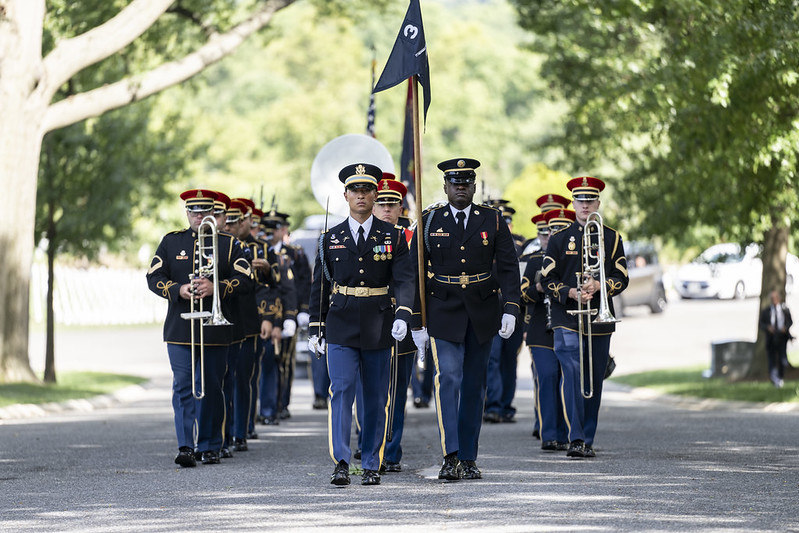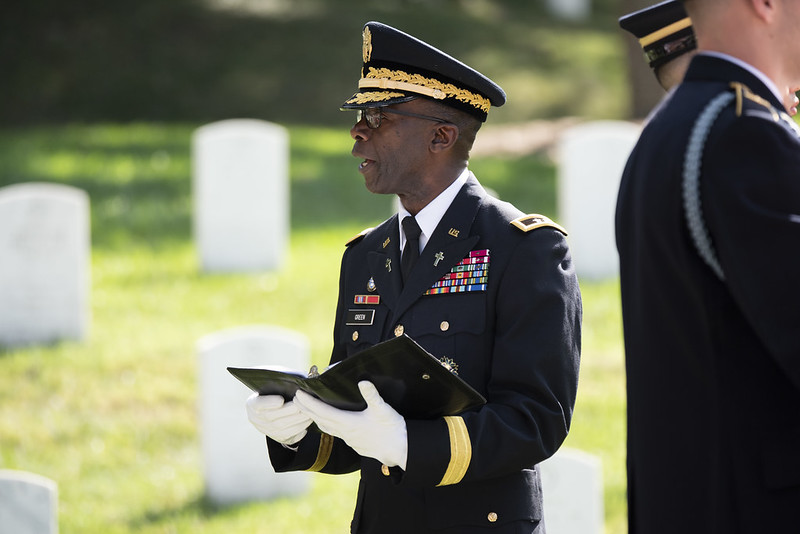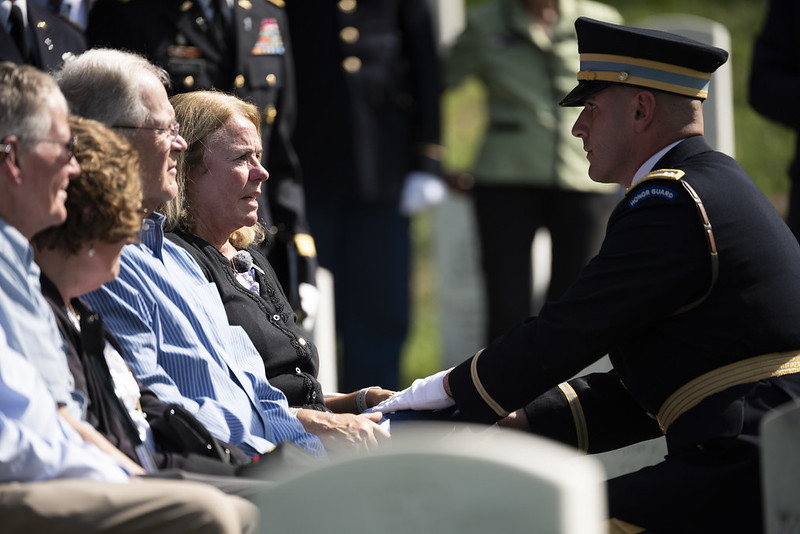
U.S. Army Chaplain (Lt.) George Fox personified the ideals of a military chaplain: love, leadership and sacrifice. On the night of Feb. 3, 1943, a German torpedo struck the U.S. Army Transport Ship Dorchester. Fox, and three other chaplains onboard, calmed panicked men, gave their life vests to men without them, helped men into the lifeboats and then remained on the sinking ship, praying for their fellow soldiers’ safety.
The story of the four chaplains became a U.S. military legend. The four represented a cross-section of American faiths. Fox was a Methodist minister; Chaplain (Lt.) Alexander Goode was a Jewish rabbi; Chaplain (Lt.) Clark Poling was a Reformed Church in America minister; and Chaplin (Lt.) John Washington was a Catholic priest. All were Army chaplains, with Goode serving in the Army Air Forces. Their lives and service became the standard to which military chaplains aspire.
On Sept. 4, 2024, about 50 people gathered in Arlington National Cemetery’s Section 35 to honor Fox at a memorial service. Many attendees were chaplains themselves, representing the Army, Navy and Air Force.
U.S. Army Chief of Chaplains (Maj. Gen.) William Green, Jr., who spoke at the service, described Fox as a man of profound humility and modesty. “He would have been the first to consider others more worthy of recognition than himself,” Green said, “and yet few are as deserving of our highest esteem and emulation.” He explained that Fox was no stranger to war: during World War I, he enlisted in the Army at the age of 17 and experienced frontline combat as a litter bearer. Although Fox returned home, started a family and became a minister, he rejoined the Army as a chaplain when the United States entered World War II—only to lose his life that night aboard the Dorchester in the North Atlantic.

“Fox’s entire life stands as a noble example of love and affection,” Green concluded. “His story has been told and retold, and that story of resolute love has shaped not just you, his family and friends, but it has shaped chaplaincies across the military and especially in the United States Army.”
Lisa Hirbour, Fox’s youngest grandchild, accepted the flag that the honor guard had folded during the service. “It’s been a long time coming,” she said. “He was lost over 81 years ago, and I think my mother and my grandmother would be very proud today.”

After the ceremony, both Air Force and Navy chaplain representatives spoke about what the four chaplains meant to them. Air Force Chief of Chaplains (Maj. Gen.) Trent Davis reflected, “Their love for their fellow soldier, their love for one another and their love of God has been a guiding principle for the entire corps, and certainly has been for me in my entire career.”
Navy Chaplain (Capt.) Brian Weigelt, executive assistant to the chief of Navy Chaplains, spoke about the chaplains’ collaborative effort to help all military members, regardless of service branch. Although the four chaplains served in the Army, he noted, “the fact that they died at sea, facing the challenges of oceanic travel in a combat scenario, means that they have a special place in the Navy, too."
► Explore our education materials to learn more about the role of chaplains in the military.